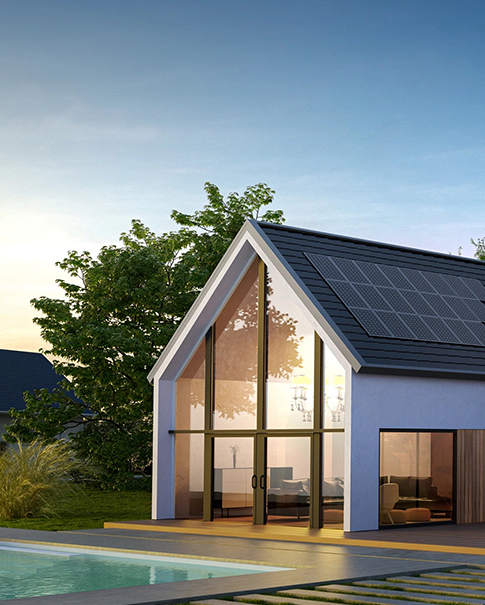-
Make a Call : +86 -13244735151
-
Get A Estimate : chris@keyuenewenergy.com
What Are You Looking For?
What Are You Looking For?
Make a Call : +86 -13244735151
Get A Estimate : chris@keyuenewenergy.com

What are the benefits of using micro inverters over traditional inverters?
May 31, 2024Micro inverters offer several advantages over traditional (string or central) inverters, making them a popular choice for many solar power systems. Here are the key benefits:
1. Increased Energy Harvest
Panel-Level Optimization: Micro inverters optimize the performance of each individual solar panel, ensuring maximum energy production. If one panel is shaded, dirty, or malfunctioning, it doesn't significantly impact the performance of the other panels, unlike in string inverter systems where the lowest performing panel can reduce the output of the entire string.
2. Improved Safety
Lower Voltage: Micro inverters typically operate at a lower voltage compared to string inverters, reducing the risk of high-voltage DC electricity and making the system safer to install and maintain.
Rapid Shutdown: Many micro inverters comply with rapid shutdown requirements, which enhances safety during emergency situations by quickly reducing the system's voltage.
3. Easier Installation and Design Flexibility
Scalability: Micro inverters allow for easy expansion of the solar array. New panels can be added without worrying about matching the voltage and current characteristics of an existing string.
Simplified Wiring: With micro inverters, the system uses standard AC wiring, which can be simpler and more familiar to electricians, potentially reducing installation complexity and costs.
4. Enhanced Monitoring and Troubleshooting
Panel-Level Monitoring: Micro inverters often come with monitoring systems that provide detailed performance data for each individual panel. This makes it easier to identify and address issues, ensuring the system is always performing at its best.
Remote Diagnostics: The detailed monitoring capabilities allow for remote diagnostics, reducing the need for on-site visits for troubleshooting and maintenance.
5. Increased System Reliability and Longevity
Distributed Power Conversion: By spreading the power conversion process across multiple micro inverters, the system is more resilient. A failure in one micro inverter only affects the associated panel, rather than the entire system.
Heat Dissipation: Micro inverters are typically installed on the back of each panel, where they can dissipate heat more effectively than a single large inverter.
6. Adaptability to Complex Roofs
Flexibility with Shading and Orientation: Micro inverters allow panels to be installed on roofs with varying angles, orientations, and shading conditions without significant losses in efficiency. This makes them ideal for complex roof layouts.
7. Grid Stability and Compatibility
Improved Grid Interaction: Micro inverters often have advanced features for better grid interaction, including reactive power control and support for various grid codes, which can enhance the stability and compatibility of the solar power system with the local grid.
Keyue: As a professional solar grid micro inverter factory, we provide the best solar grid tie micro inverters, photovoltaic micro inverters, solar power micro inverters, etc. Low cost. Long life.